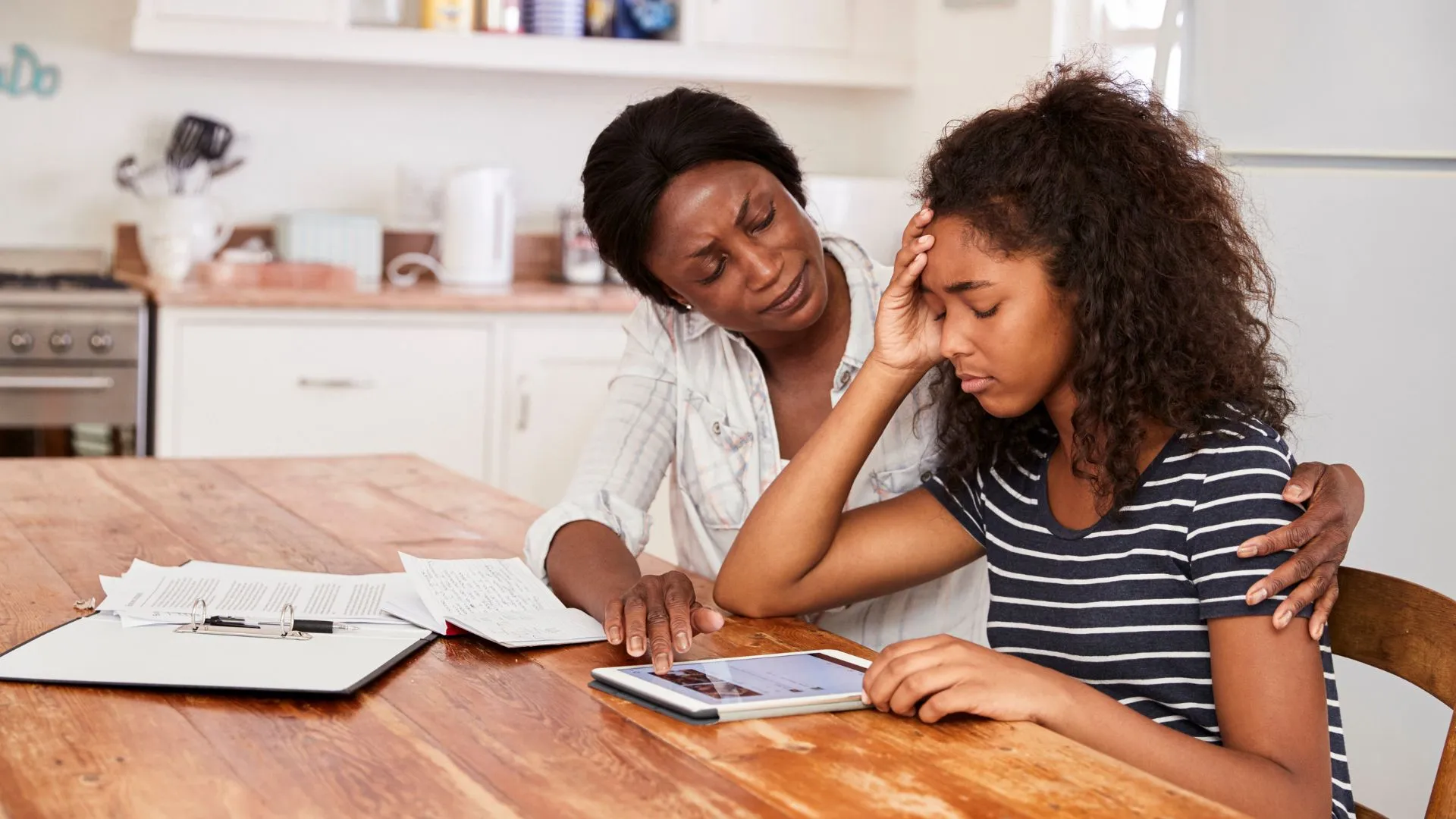The everyday life is shaped by resilience narratives, with African and African American parents navigating the mental health crisis among children and their rising anxiety.
For generations, cultural legacies have been handed down for preservation, especially with the rising systemic adversity. “Black don’t crack,” and “Africans are strong” are sayings that have been embraced over the years but beneath the polished exterior is a growing unease: a rise in childhood anxiety, mirrored and magnified by anxious parents, especially in a community historically underserved by mental health systems and often culturally conditioned to “tough it out” continues to reshape parenting.
The Landscape of Anxiety in Black Families
Recent data from the Journal of the American Academy of Child and Adolescent Psychiatry show that anxiety diagnoses among Black youth in the U.S. have nearly doubled in the past decade, yet Black children are still less likely to receive treatment than their white peers.
In many African contexts, anxiety is linguistically untranslatable; terms for mental health are scarce or carry stigma, meaning children’s struggles often go unnamed and unaddressed.
Socioeconomic strain, community violence, systemic racism, and academic pressure intersect, leaving Black parents and their children overwhelmed and without sufficient culturally appropriate resources.
Why Parents Are Feeling It Too
African American parents today bear not only modern stressors but also the weight of inherited trauma. Research shows that parental anxiety transmits behaviorally: children learn to fear the world by watching anxious caregivers navigate it.
In African immigrant families, parents face acculturative stress, the strain of adapting to the diasporic culture while preserving their heritage, often placing conflicting pressures on children to excel in an unfamiliar environment.
Parenting Styles and Cultural Dissonance
Many Black parents employ a protective, authoritative parenting style rooted in survival with strict rules, high expectations, and low tolerance for emotional expression. While intended to safeguard children, these strategies inadvertently amplify anxiety when children’s emotions are dismissed or minimized.
In African cultures, the proverb “a child should be seen, not heard” reflects a norm of emotional containment. But contemporary children, exposed to Western mental health discourse and online emotional openness, often experience a cultural mismatch at home.
The Role of Social Media and Modern Expectations
Black parents are navigating a 24/7 digital world where children are exposed to new technology, digital literacy, violence, comparison, and perfectionistic ideologies.
For immigrant African families, social media has widened the gap between generations with children assimilating faster and consuming Western ideals that parents may neither understand nor condone, creating family conflicts that fuel anxiety on both sides.
Barriers to Mental Health Support
Cultural stigma: In many Black communities, seeking therapy is still seen as admitting weakness or moral failure — “That’s for white folks,” some say.
Accessibility: Black families often live in areas underserved by culturally competent mental health professionals; those who do seek care frequently encounter providers who lack cultural sensitivity.
Spiritual bypassing: In both African and African American homes, faith communities are central, but some rely too heavily on prayer alone, avoiding psychological care entirely.
Innovative Solutions That May Emerging from Within the Culture
Grassroots programs like Black Parent Initiatives and therapy for Black children can be introduced to reframe mental health as strength, not shame. Community churches are beginning to integrate counseling ministries and host mental health awareness events.
In Africa, youth-led organizations are pioneering mental health literacy programs but will benefit from funding and robust and holistic strategies.
What Parents Can Do: Practical Steps
- Listen, but don’t lecture: Replace authoritarian responses with open-ended questions about feelings.
- Model calm: Children absorb how parents regulate emotions. Slow breathing and visible coping techniques matter.
- Name it to tame it: Help children name anxiety rather than punish emotional outbursts.
- Seek culturally informed care: Therapists and counselors who understand the intersections of race, culture, and trauma provide the best support.
- Balance faith and psychology: Prayer and counseling are not mutually exclusive.
Conclusion:
In African and African American communities, where resilience has long been a badge of honor, it is time to expand the definition of strength to include emotional openness and mental health care. The new generation of parents has an opportunity: to break cycles of silence, to parent from a place of healing rather than anxiety, to teach their children that vulnerability is not weakness, but wisdom, and to model their spirituality with pride but from a place of victory and not slavery because Jesus already paid all the price.

